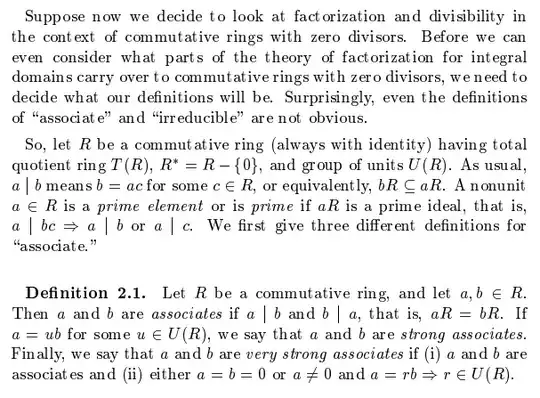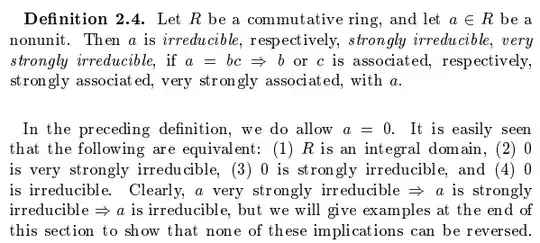We took the following definition of irreducible:
If $R$ is a commutative ring, $r \in R$ is irreducible if $r = ab$ for $a,b \in R$ implies $a \in R^{*}$ or $b \in R^{*}.$
Then my professor said: "so $0$ is not irreducible" but I do not understand that as I know that $0 = 1.0$ and so we have $1$ is a unit and so $0$ can be irreducible. Could anyone explain that to me, please?

